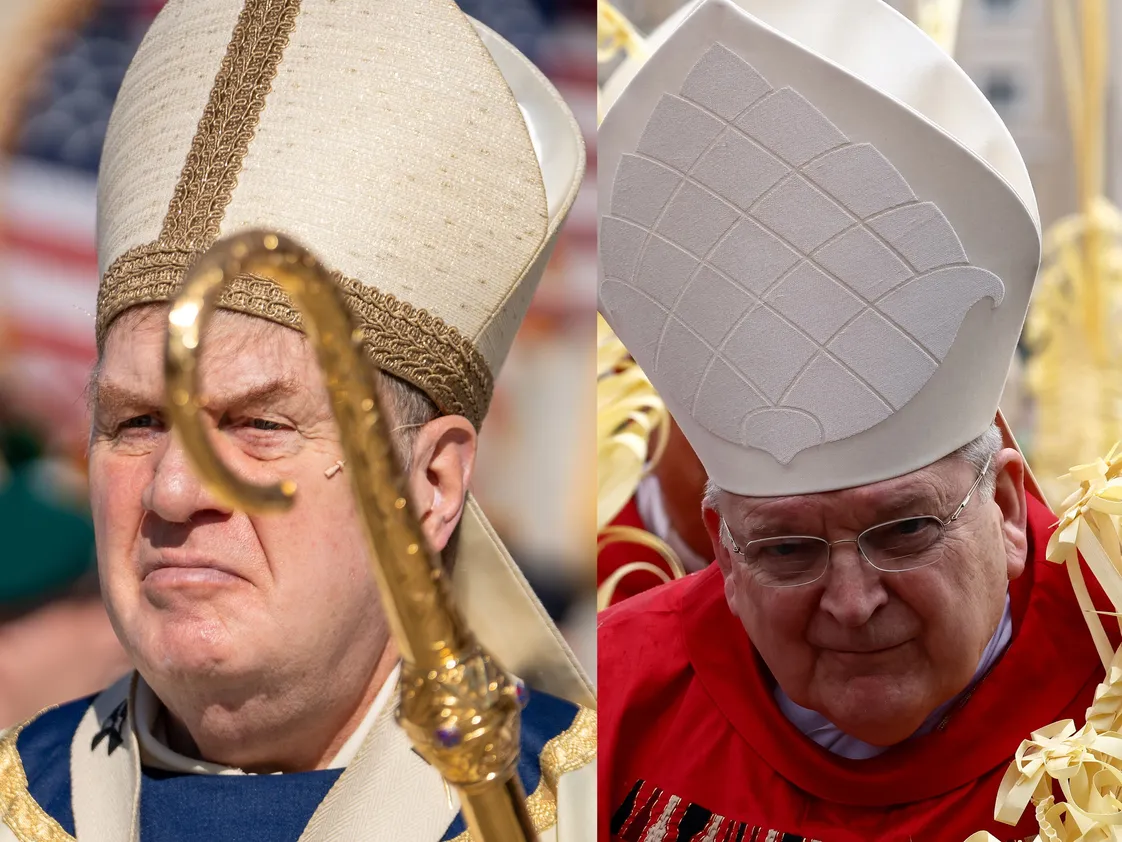Could the next Catholic pope be an American?
- anigevorgn
- 1 hour ago
- 2 min read
This story has been updated with new information.
Following the passing of Pope Francis, two prominent cardinals from the United States could be in the running to be the next leader of the global church.
According to the U.S. Conference of Catholic Bishops, the conclave, a gathering of cardinals, chooses the next pope 15 to 20 days after the vacancy. This would put the meeting start date between May 6 and May 12.
Two cardinals from the United States with different theological stances are among church leaders likely to be discussed at conclave.
Cardinal Joseph Tobin, 72, was a confidant of Pope Francis, who elevated the Archbishop of Newark, New Jersey, into the College of Cardinals in 2016. He is a particularly fierce advocate for immigrants who has defended the progressive, inclusive teachings of Francis. Tobin, has openly welcomed LGBTQ people into services, emphasizing the need for compassion over exclusion. He has suggested the church might, in the future, allow women to be ordained into the ministry. Among other roles in church leadership, Tobin was appointed to the top Catholic court in 2021.
Cardinal Raymond Burke, 76, led the Archdiocese of St. Louis before holding various roles in church governance as part of the Roman Curia. He was appointed to the College of Cardinals in 2010 by Pope Benedict XVI, who was a vociferous defender of mostly traditional Catholic doctrines. Burke lost titles and authority under Pope Francis, with whom he frequently clashed. Burke, who once served as prefect for the top Catholic court, was removed by Francis then, years later, reappointed in a general role. Among other topics Burke has spoken on, he is among cardinals who believe Mass should only be conducted in Latin, not in common spoken languages, and opposes softening attitudes toward homosexuality or encouraging acceptance of gay people in Catholic life.
What started as a small group of traditionalists opposed to some changes made by the council – most notably the decision to allow mass to be conducted in languages other than Latin – has gained influence, particularly as the Catholic Church has grown in the global south and fewer Vatican roles are filled by long-influential Italian bishops. Burke is among those who hope the church will retreat from some changes made during the Second Vatican Council.
The differences between the two American cardinals reflect divisions within the broader global church that have grown since the Second Vatican Council, a three-year gathering of church leaders in the 1960s to broadly review the church’s teachings and practices for relevance to the modern era.

Comentários